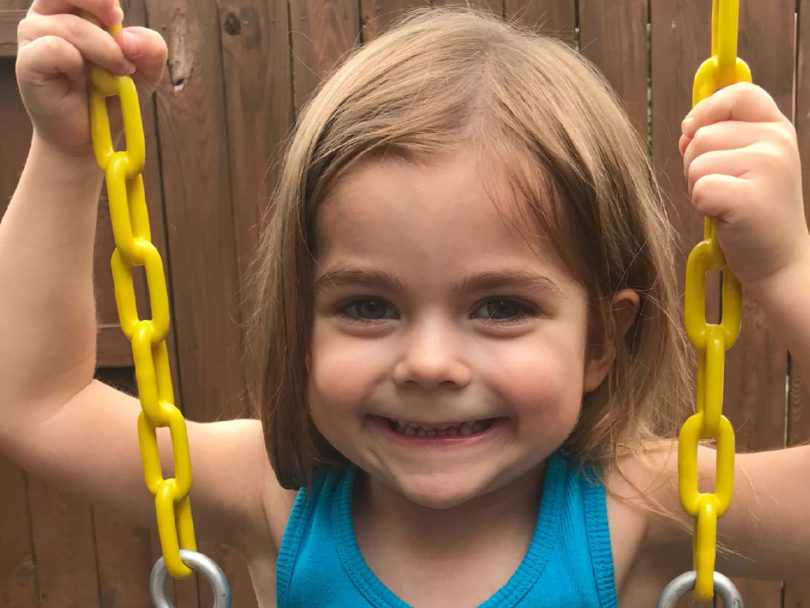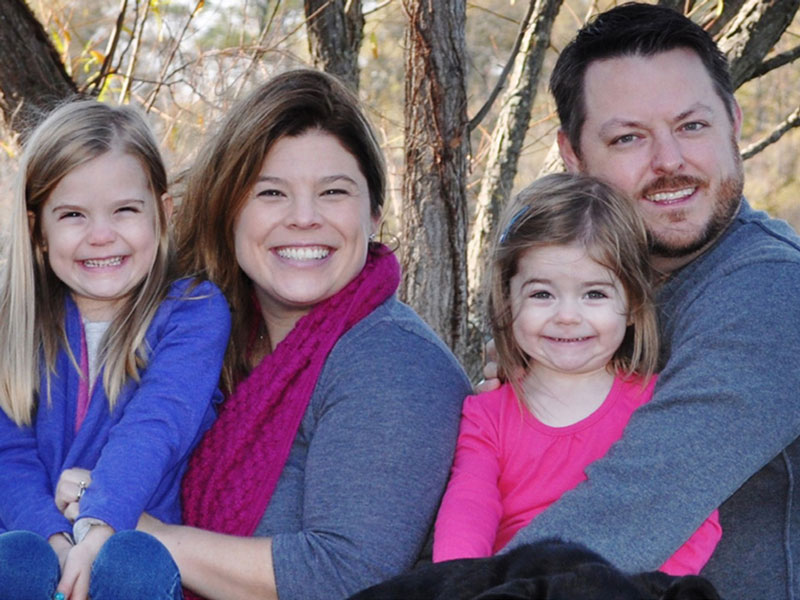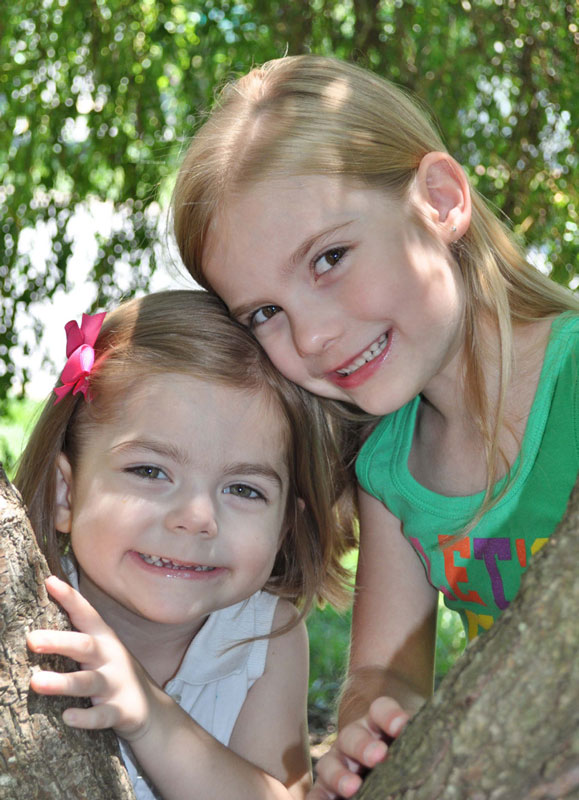At just 5 years old, Tenley Fredrickson is a pint-sized bundle of energy.
Her preschool teacher jokes that she’s probably the fastest in her class — quite a feat considering how tiny Tenley is. And then there’s the matter of her having juvenile arthritis.
“Looking at her, you wouldn’t know she has any kind of disability,” says Allison Lucas, Tenley’s teacher at Yorkminster Presbyterian Preschool. “There’s nothing that sets her apart.”
And yet for the past three years, juvenile arthritis has been a fact of life for Tenley and her family. It’s a silent kind of disease, sometimes barely noticeable except for the numerous medications involved in keeping it at bay. But it’s always there, lurking.
There is no cure. Which is why ever since her diagnosis at age 2, Tenley and her family, mom Bree, dad Kris and big sister Piper (7) — have worked hard to raise funds for the Arthritis Foundation. This year Tenley is the youth honoree for the Jingle Bell Run for Arthritis on Dec. 10th in Newport News — the foundation’s annual holiday-themed 5K.
There are about 100 Jingle Bell Runs held in November and December each year across the country, with money raised going to prevent, control and work toward a cure for arthritis and related diseases. In three years, the Fredricksons and their team, “Tenley’s Troopers,” have raised almost $15,000 for the Arthritis Foundation by taking part in three walks and two Jingle Bell Runs.
I have no control over her disease, so I’m going to do everything I can to work for a cure,” says Bree.
More than 52 million Americans have arthritis — 300,000 of those are estimated to be children, or 1 in 250. About 7,200 of those children live in Virginia.
In recent years, researchers have developed a more sophisticated understanding of the different kinds of arthritis. Juvenile arthritis isn’t just a miniature version of the more well-known rheumatoid arthritis, which affects adults. Rather, JA can include a variety of symptoms such as bone erosion, joint misalignment and changes in growth patterns. Girls with JA are more prone to eye inflammation, called uveitis. Not all children get the same symptoms, which can change from day to day.
Treatment varies as well, with one of the most common medications being methotrexate — a type of chemotherapy drug. Children with JA are often on a number of medications at once.
Tenley was first diagnosed just after her 2nd birthday, after her left knee started looking “different.” Never having had a sick visit before in her life, she began seeing various specialists before being seen by a pediatric rheumatologist. Within just a few weeks, she was barely walking.
After getting a diagnosis, Tenley began treatment — medications and physical and occupational therapies. She’s been in and out of doctor’s offices more times than her parents can count, had steroid injections in swollen joints and has had to sleep with a wrist splint at night.
These days, Tenley is doing fairly well, although she recently had to get a joint injection in her knee. She gets two injections of a drug called Enbrel, which is used to treat autoimmune diseases, once a week. Wednesdays are shot nights, and her parents make sure she plays an active part. They have a routine: Tenley chooses her Band-Aids (Belle from Beauty and the Beast is a favorite) and which stuffed animal to hold. She picks a song to play, and which two needles are used. Then she gets to pick out dinner — usually her favorite, mac and cheese.
We try to give her as much control as we can over shot night,” Bree explains.
Tenley also keeps a set of special colored-bead bracelets to signal to her parents and teachers how she’s feeling. The green one means she feels good, yellow means a little tired and red means she’s in pain. At preschool, which she attends three mornings a week, she sits on a pillow during circle time and puts on a hat when she goes out to play to protect her light-sensitive eyes.
“She’s very resilient,” Lucas says. “We just love her. When she gets tired, I want to pick her up and cuddle her.”
Even though the good days outnumber the bad, for Tenley’s parents, it can still be heartbreaking to realize how arthritis has affected their daughter. On one hand, Tenley doesn’t mind talking about it — she’s proud of the medal she won at last year’s Jingle Bell Run and is happy to show where it hangs in a place of honor in her room.
“She is truly one of the bravest, most courageous kids I know,” says Kimberly Hudson, development manager for the Arthritis Foundation. “Having endured what she has endured at such a young age – she is an inspiration to me and everyone who meets her.”
But there are times when what Tenley says just pulls at the heartstrings. Like when she said she wished she could be like her big sister and not have to take medicine.
“Sometimes I don’t like to be Tenley,” she said. “Tenley has arthritis.” Times like that keep Bree and Kris Fredrickson working to raise awareness and holding out hope for a cure.
The Jingle Bell Run for Arthritis takes place Dec. 10th at City Center in Newport News. Registration is open until the morning of the event.
For more information, visit www.arthritis.org/get-involved/jinglebell-run.



